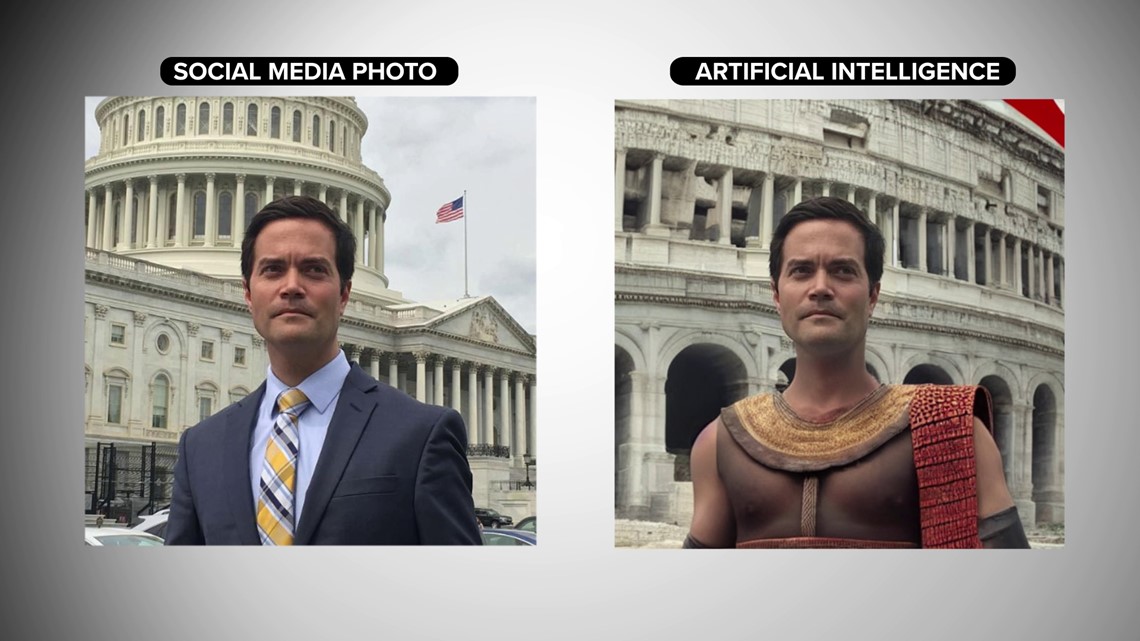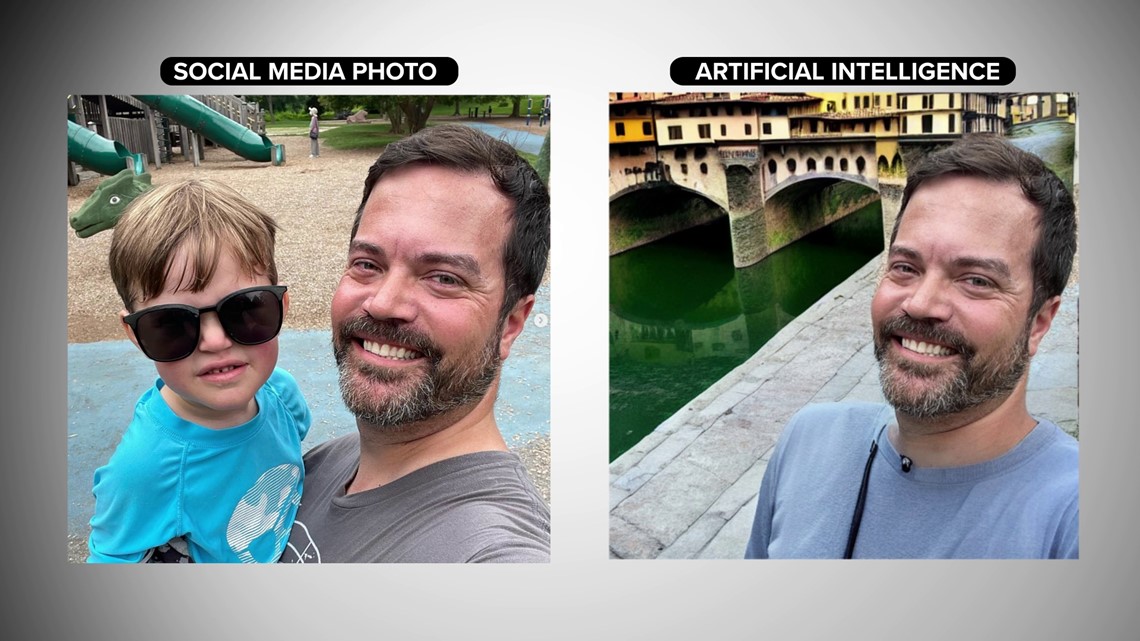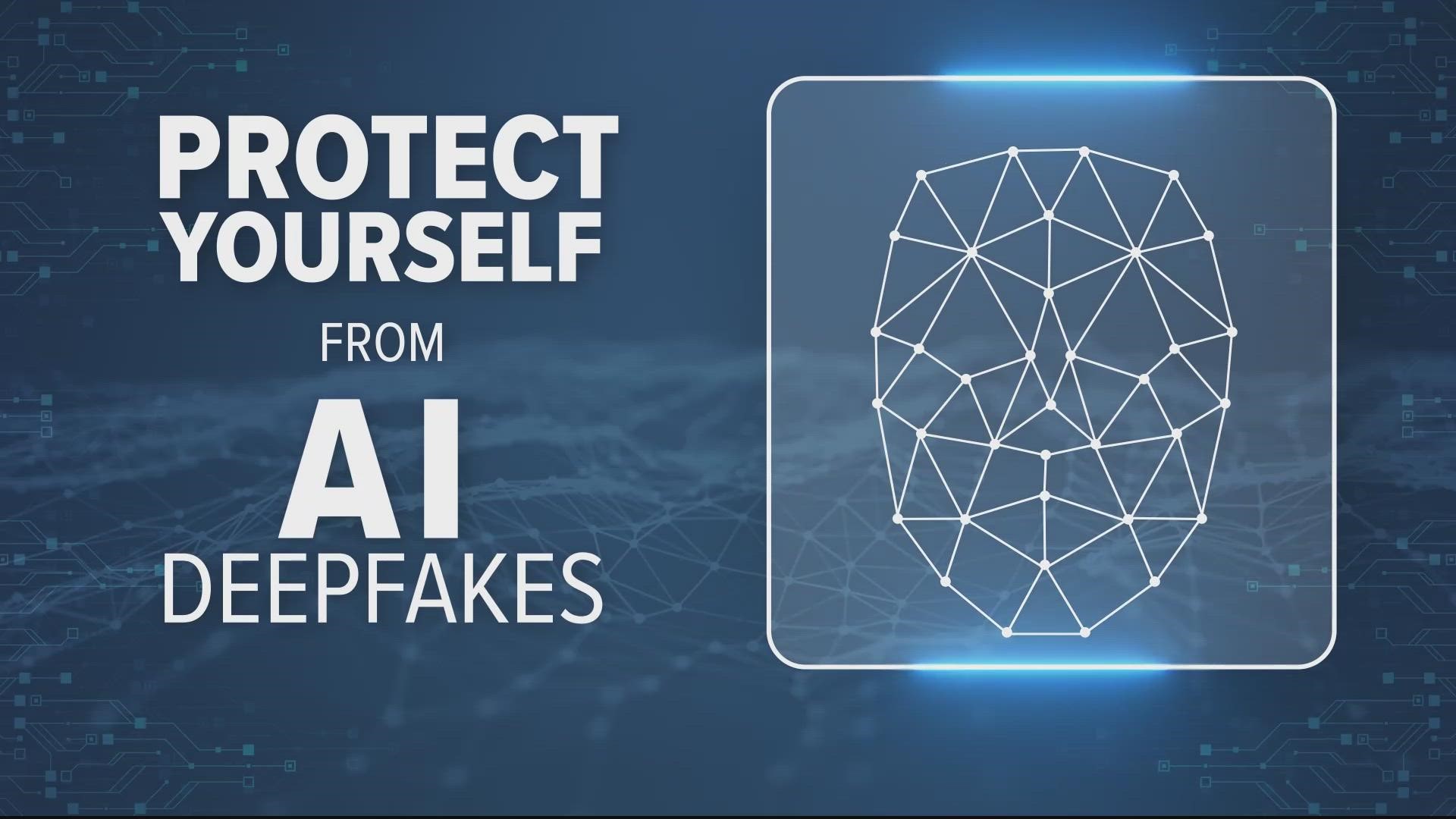CAMBRIDGE, Mass. — Deepfakes, manipulating photos to put people in compromising situations, has been a problem long before social media.
Now, artificial intelligence makes deepfake imagery so easy, nearly anyone can do it for just a few dollars almost instantly.
Video game streamer “Sweet Anita” has around 3 million followers on YouTube and Twitch.
But late January, images of her face superimposed onto another woman’s body in a pornographic picture were widely distributed around the internet.
"I was just suddenly confronted with loads of images of me doing things I've never done. And they were so realistic, and I was just heartbroken," said "Sweet Anita" by video conference from England. When asked how that made her feel, she responded, "honestly, numb and exhausted, because I feel like this is something that quite a lot of just women in general have to go through."
AI programs, with the help of a few typed-in prompts, can now create deepfake images quickly and cheaply. Aleksander Madry at the Massachusetts Institute of Technology grabbed some of my social media pictures.
"Nathan, we found some of your Instagram photos," Madry demonstrated from MIT, "For instance, over here, we have your photo. It’s you at the Capitol. But now, if we wanted to put you in Roman Empire."


Madry then changed my image to put me in ancient Rome, or on an Italian vacation, or on a battlefield, or as a jail inmate. Type in a few words, no special training needed, and the AI does the work.


"You can create realities that do not exist," said Madry. "You can just take your image from Instagram, put it in some very compromising pose, and say, “we’ll post it online if you don’t pay us money."
Madry helped develop a program called "Photoguard." It denies the AI the ability to manipulate your pictures convincingly, a technology Madry hopes social media companies will soon adapt.
"Think of this as adding a protective layer. It is invisible to you," explained Madry.
Virginia State Senator Adam Ebbin wrote a 2019 law that made creating and distributing deepfake pornography images illegal.
“The results of images on the internet, even fake ones, can last forever," Ebbin said. "We don't have a federal law prohibiting it."
Only Virginia and California have deepfake laws, and neither prohibit creating harmful images of a non-pornographic nature due to free-speech concerns.
"We have to monitor and see if it becomes a problem for speech and other areas outside of simulating adult conduct," added Ebbin.
Video game streamer "Sweet Anita" says while AI makes deepfakes easier to create, AI itself shouldn’t be feared as a tool for progress.
"With AI, it's a reflection of its user, always. So if the user wants to do something dark it can be put to dark uses."
When asked what advice she would have for other victims of deep fake porn, the video game streamer responded, "Other people have tried to make me feel this is shame. But the shame isn't yours, you haven't done anything wrong."

